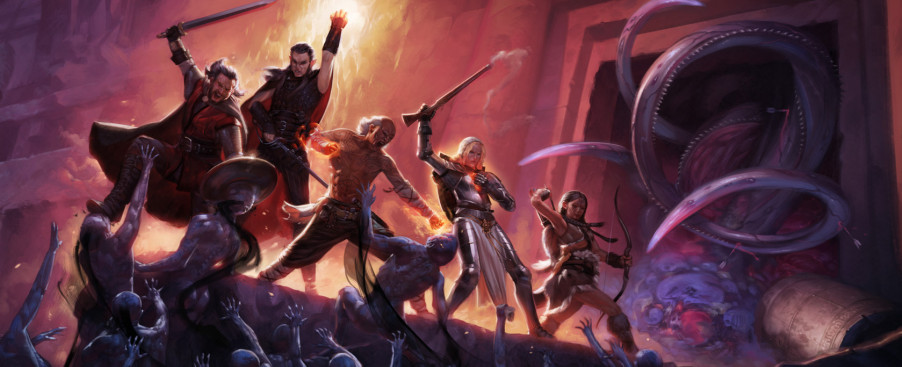Pillars of Eternity Interview
-
Category: InterviewsHits: 17884

Article Index
Buck: While we're on the thieving front, what do you intend to be the penalty for player characters who are caught thieving and/or breaking the law within a patrolled area? Will we be saving our game on a regular basis before carrying out any such mischievery, or will there be other options for us to deal with encounters with the law?
Josh: That will depend on the area, honestly. We're not going to go overboard with crime and punishment systems but there will be some reactivity.
Buck: How are you approaching itemization in Eternity? Obsidian has dabbled with randomly-generated loot in the past, so will we be seeing Diablo-style prefixes and suffixes on items, or are you concentrating on more unique items with special and unconventional effects? As for rewards from quests and dungeoneering, one problem that has traditionally existed in RPGs is providing players items they don't need, like a sword for a wizard. Are you using any sort of scaled rewards, selecting them based on class, or offering players a choice of reward?
Josh: We're not using randomly generated items, but hand-built items in lightly randomized lists. Our unique items have their own histories and a mix of common effects with a few rare or truly unique ones.
Our equipment system is less restrictive than D&D and much less restrictive than AD&D. Combined with our party system, I don't think that finding uses for items will be a stumbling block in Eternity.
Buck: As crafting is a significant component in Eternity, how much of our characters' equipment are you targeting to be acquired through purchasing vs. looting vs. crafting? Which of these three are you focusing on for the most powerful equipment in the game?
Josh: Most of our crafting is focused on creating consumable items or adding effects to equipment, though we will also have special quests (like Crom Faeyr or Cera Sumat in Baldur's Gate II and Icewind Dale II, respectively) to find or assemble powerful items.
The majority of your gear will be found and purchased with crafting allowing you to add further customization. The most powerful items will likely be found in optional, high-difficulty areas. However, even those can potentially be modified with crafting.
Buck: What can you tell us about the game's inventory management at this stage of development? Will the managing of our backpacks be tied to encumbrance, the size of the objects we're carrying, or both?
Josh: Each item or stack takes a single inventory slot as in the Infinity Engine games. Every party member has his or her own pack on the shared inventory screen. The number of pack slots available to each character depends on his or her Strength score (and possibly Talents). Pack sizes are smaller than they were in the Infinity Engine games, but the party also has a separate stash where they can store items that don't get regular use.
The stash can be accessed for deposits at any time but players can only retrieve items from the stash when they are at certain locations (e.g. camps and merchants).
Buck: Will buying/selling items in regular intervals be a requirement, and do you ever foresee the need for a player to leave an area and/or backtrack to take care of inventory-related needs at their stronghold or at the planned stash?
Josh: It won't be a requirement, no. When picking up items, the players will have decisions to make because their packs fill up quickly. Pack size limits their options in the field, but the stash can easily be used for overflow.
Buck: You've given us a brief glimpse of the game's dialogue system and the alpha UI you've built for it, but can you describe how the dialogue system has evolved from what we've become accustomed to over the years? In particular, how does it compare and contrast to the Infinity Engine games or, for example, Fallout: New Vegas or Neverwinter Nights 2? Do skills, attributes, and previous choices consistently play a role in the dialogue options presented to the player?
Josh: We want our dialogue to be very reactive both to how you build your character and how you role-play over the course of the game. Attributes come up in dialogue very often, but as with other stats, the options they provide are not always the ideal way through a conversation.
As in Fallout: New Vegas, we track faction reputation. We also track your personality reputation, which is the sum of how you generally behave. If you are consistently diplomatic, hot-tempered, stoic, or cruel, we want you to feel like you are developing a reputation for being that kind of character in the world.
Perhaps to many the most appealing new feature we're implementing is the ability to turn off the game mechanic indicators that we use in dialogue. By default, players will see when an option has been opened up because of a particular attribute or if it will influence a reputation. In Expert mode, these are all turned off automatically. In standard games, players can turn them off or on as they see fit.

